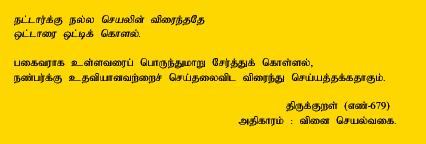


|
Steps To Forgiveness
1. Confront your emotional pain - your shock, fear, anger, and grief. Recognize that the hurt that has occurred may have been very unfair and that these steps are not meant to minimize the hurt involved. 2. Realize that forgiveness can only be appropriate after you have processed out your fear, anger, and grief. However, also realize that you can set forgiveness as a goal in the future for your sake now! Recognize that to continue to dwell on the anger and resentment involved in the hurt will literally destroy your physical health, and cause you great mental suffering. New studies clearly show that anger and resentment doubled the risk of myocardial heart attacks in women with previous coronary problems. Other studies indicate cancer and other deadly illnesses are also caused by anger and resentment. So be willing, for your sake, to begin to process out these deadly emotions as soon as possible. 3. Understand that love is what you ultimately want for yourself from yourself. 4. Understand that forgiveness does not condone or approve or forget the harmful acts; forgiveness does not allow yourself to be abused. We forgive the doer, not the doing. Remembering this helps us to break harmful cycles of behavior. 5. Realize that you are the only person responsible for your own feelings and for healing the hurt that is going on inside of you. 6. Remember that you are so powerful that usually you had some part in what happened. Be willing to totally face up to that part and accept it without blame (to forgive and love that part). 7. See this situation as an opportunity for healing and for growth. See that the other person involved has revealed to you through his or her actions where there was a wounded spot in you which needed healing. 8. Start releasing anger, sadness, grief, and fear through the many processes, therapies and therapists available. Have a person to work with who can truly empathize with you, yet who can be objective and help you shift your perception from blame to healing. 9. Decide to forgive. Even if this decision is half-hearted at first, it will probably lessen your hurt and anger immediately. Notice that this decision can be difficult because after you have processes out the anger, resentment and grief, you will have to give up the grudge - the being the "victim", the "being right" and making the other person "wrong". Notice that this is "superior" position which can be used to get a lot of self-righteous attention. Be willing, for your sake to have the courage to get off that "superior" position. 10. Be willing to find a new way to think about the person who wronged you. What was his or her life like growing up? What was his or her life like at the time of the offense? What were this person's good points up to the time of the hurt? Notice you may not be able to see much good within until you have processed out your anger and/or grief or fear. 11. Be aware that being forgiving is a courageous act on your part. It has nothing to do with whether the other person can admit they are wrong. You are forgiving to liberate yourself no matter what the other person decides to do. 12. Be willing to do and learn whatever it takes to forgive. Commit to do processes, to read courageous stories of forgiveness, to write in journals, to see a therapist, to do training�s, or to do whatever it takes to heal the wounds involved. Remember these wounds may be deeply tied to past hurts going back to your interactions with your parents. Resolve to follow them through for your total healing, even if it involves years of effort to heal. Remember that you are determined to find the true happiness and joy that true forgiveness can bring to your life. 13. If you believe in God, be willing to pray on this problem and to turn to this Higher Power for guidance and assistance in the forgiveness process. 14. Accept the lessons involved in this incident � our lives are laboratories for learning. What have you learned from this event that is invaluable to you? Has some form of attachment to a belief or beliefs a position has caused you the pain involved? What belief or beliefs were involved? 15. See that everything is okay; possibly perfect, as it is now. 16. If you have the willingness and it is appropriate, seek feedback from the other person by being willing to say "I'm sorry that I did..." (whatever it is that you feel contributed to the problem). 17. Regardless of what the other person does, work towards seeing them with love and goodness. Know that therefore love and goodness are thus flowing to you for your mental and physical health and well-being. What Forgiveness is
Forgiveness is not conditional Forgiveness costs Forgiveness includes actions Forgiveness is a present event Forgiveness is freedom Forgiveness is a form of realism Forgiveness is a sign of positive self-esteem Forgiveness is letting go of the past Forgiveness is no longer wanting to punish those who hurt us Forgiveness is moving on Forgiveness is in recognizing all that we have lost because of our refusal to forgive. It's in realizing that the energy that we spent hanging on to the past is better spent on improving our present lives and our future. It's letting go of the past so that we can move on. Why Forgiveness What is forgiveness? Forgiveness is a way of releasing ourselves from the pain we have experienced at the hands of others. It is a release from judgment, including our judgment of ourselves. Forgiveness is not Condemnation Forgiveness does not mean you agree with what the other person did to you. It does not mean you can change what happened or erase what they did. What�s done is done. All you can do is release yourself. Forgiveness is Not for Them, It�s for You Forgiveness is not something you do for someone else, but to free YOURSELF from the continuation of pain and anger. It is a gift to your peace of mind, your self esteem, your relationships with others, your future. Forgiveness is the act of releasing yourself from the consequences of your own false expectations.... Forgiveness is Freeing Forgiveness is the act of releasing yourself from the consequences of your own false expectations. The purpose of Forgiveness is to free yourself from the entanglements of the past, to reestablish control over your life by letting go of unpleasant events and people and reconnect with a healthy, positive direction. Holding on to anger and shame is unhealthy. Releasing it is freeing. Forgiveness is in Our Control Forgiveness cannot be forced or coerced, it can only be given freely. It is a power each of us has independently of others. It is a choice. Forgiveness Releases US from Self Destruction Anger hurts not only those it is directly at, but those who wield it as well. By not forgiving the person who wronged us, we continue to inflict on ourselves the pain they created. Forgiveness Requires US to Give Up Suffering Oscar Wilde said that suffering is a gift. It is also a need. Forgiveness requires that we let go of our need to be pitied, our need to be right, and out need to feel an intense connection with our tormentor through anger. Forgiveness Means Taking Responsibility for Choices Forgiveness is a choice that requires us to take responsibility for our actions and feelings. It requires us to be responsible to and for ourselves, even for our pain and humiliation. It means being responsible for the choices we make, including the choice of anger and the choice of Forgiveness. Forgiveness is Powerful Anger appears powerful, but leaves us feeling frustrated and powerless. Forgiveness, which appears weak, leaves us feeling stronger and less vulnerable to others. Forgiveness is Easy Most of us have not learned techniques to reach Forgiveness, but we know it begins with in the heart. All one needs to begin is to WANT to be released from the past. The other person need not be present, though it is better if they are. Forgiveness is seeing the other person and ourselves without judgment. By Kenneth Cloke |

